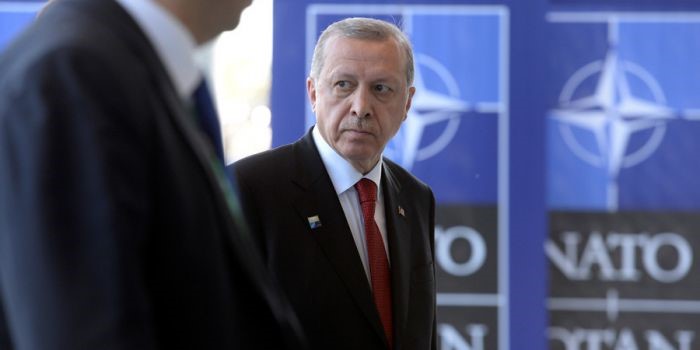Nordic Monitor
Recognizing the People’s Protection Units (YPG), the military wing of the Kurdish Democratic Union Party (PYD) in Syria, as a terrorist organization in official wording has been an important point of dispute between Ankara and its NATO allies since 2015, a classified military memo obtained by Nordic Monitor has revealed.
Turkey has been angered over the support NATO allies have given the YPG, a partner in fighting Islamic State in Iraq and Syria (ISIS) militants and wants the alliance to officially classify the YPG militia as terrorists. Last week Turkey temporarily refused to back a NATO defense plan for the Baltic states and Poland unless it received more political support for its fight against the YPG militia in northern Syria.
The military document confirmed that some NATO member states including the United States, Germany, France, Greece and the United Kingdom rejected Turkey’s demand to define the YPG as a terrorist organization and a threat to Turkey in NATO Agreed Intelligence (NAI) documents and Joint Threat Assessment (JTA) reports in 2015.
According to the memo, issued by the Directorate for Plans and Principles of the Turkish General Staff in December 2015, the PYD and YPG were previously described as affiliated entities (PYD/YPG) of “PKK/KONGRA-GEL/KCK” in NATO intelligence assessment documents on terrorism, while the YPG was referred as “the extension of the PKK/KONGRA-GEL/KCK terrorist organization in Syria” in the footnotes of NATO Intelligence Fusion Centre (NIFC) correspondence approved in 2015 and earlier.
Created in 2006, the NIFC is a military led, US-sponsored organization, chartered by NATO’s Military Committee, based on a memorandum of understanding among 26 NATO member states and one partner country.
Moreover, the memo revealed that Turkish authorities foresaw how the dispute would be transformed into an issue between NATO and Turkey. In the document military officials underlined the fact that the description of the YPG in footnotes could also be deleted in updated versions of NATO intelligence documents due to pressure from the leading actors of the alliance.
As indicated, Turkey has not been able to persuade its allies to consider the YPG a threat to its security during the last four years, the latest reports revealed.
The memo also pointed out that Turkish representatives proposed the use of neutral terminology such as “rebel groups, terrorist organization, extremist radical group, Al-Qaida(AQ)-inspired threat, extremism from AQ-associated ideology, AQ-affiliated terrorist organization, AQ-linked group, radicals or insurgents, indoctrinated or inspired by AQ ideology” instead of “Islamist terror/terrorism, jihadist, Islamist militia, which link Islam to terrorism” in NATO intelligence documents.
President Recep Tayyip Erdoğan’s government insists the YPG is an extension of the Kurdistan Workers’ Party (PKK), which has fought for Kurdish autonomy in Turkey since 1984 and is designated as a terrorist group by Turkey, the US and the EU. The YPG and PKK share a similar ideology but say they are separate entities.
The YPG has become the dominant force in an alliance of Kurdish and Arab militias called the Syrian Democratic Forces (SDF). With the help of airstrikes by the US-led multinational coalition against ISIS, SDF fighters set up an autonomous administration in northeastern Syria between 2015 and 2019.
The Turkish government accuses NATO of failing to support its military offensives in northern Syria and claims that the YPG poses threats to its security. Under NATO’s 1949 founding treaty, an attack on one ally is an attack on all, and the alliance has military strategies for collective defense across its territory.

According to the Turkish media, Turkey made its demands before its offensive in northern Syria, and NATO had agreed to back the alliance plan for the defense of Turkey that included recognizing the YPG as a threat to Turkey. But, the US later withdrew its support, after which other countries then opposed it as well. In retaliation Turkey refused to approve the release of a NATO defense plan for the Baltic states and Poland until the alliance paved the way for the prior agreement.
The issue between Turkey and its allies has come to a head because of NATO’s 70th anniversary summit in London, at which security documents were to be approved. Meanwhile, Turkey tested its new Russian S-400 missile defense system by flying F-16 aircraft over its capital of Ankara prior to the December 3-4, 2019, summit. The summit was expected to indicate whether Turkey will remain an integral part of the alliance or prefer to increase its political and security ties with Russia.












